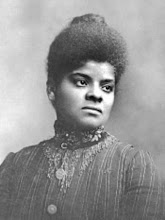This week’s beautiful black woman is Henrietta Lacks (August 1, 1920- October 4, 1951). During her lifetime Lacks was an unknown tobacco farmer born and raised in southern Virginia. She was one of ten children born to Eliza and John Pleasant. Lacks married David Lacks and bore five children. In 1943 she and her family moved to Baltimore where she lived until her death.
In February, 1950 at age 30 Lacks was diagnosed with cervical cancer. During her treatment at John Hopkins Hospital doctors removed part of her tumor without her consent and began using her cells for medical research. Dr. George Gey discovered that Henrietta Lack’s cells were eternally viable in the laboratory and could be mass produced. Lack’s cells were the first human cells found capable of surviving outside of the body FOREVER. Normal cells had a lifespan but Henrietta's cell's were immortal. This was clearly a milestone for medicine. Dr. Gey named the cells HeLa and they were immediately cultured and used for medical research. Lacks died just eight months later for the cancer. Just three years after Henrietta Lack’s death, HeLa cells were used by the famous Dr. Jonas Salk to find the polio vaccine. Since then, Hela cells have been used worldwide in medical research.
The crazy piece of this story is that while HeLa cells were being produced and sold in laboratories all over the world the Lack’s family was unaware of HeLa for over twenty years. In 2001 the National Foundation for Cancer Research announced plans to honor Henrietta lack’s contribution to medicine but plans were derailed with the events of 9/11.
This past February scientist Rebecca Skloot published The Immortal Life of Henrietta Lacks with Crown books. It is the first biography of Henrietta Lacks and has drawn renewed attention to this medical milestone and the woman behind it all.
Learn more about Hernietta by visiting Skloot’s website.
You can also read a good interview on Smithsonian online magazine
Tuesday, March 30, 2010
Subscribe to:
Post Comments (Atom)







Thanks for the story of Henrietta. There are also two good interviews on NPR.
ReplyDeleteAll Things Considered http://www.npr.org/templates/story/story.php?storyId=123472238
Fresh Air http://www.npr.org/templates/story/story.php?storyId=123232331